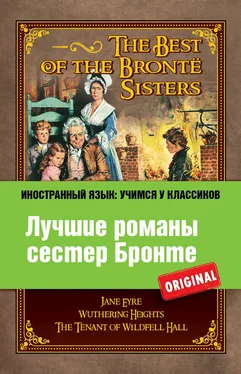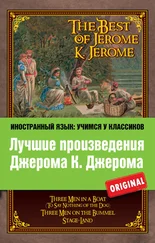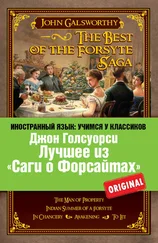‘Never fear, my dear! the male fools and reprobates will never want for partners, while there are so many of the other sex to match them; but do you follow my advice. And this is no subject for jesting, Helen – I am sorry to see you treat the matter in that light way. Believe me, matrimony is a serious thing.’ And she spoke it so seriously, that one might have fancied she had known it to her cost; but I asked no more impertinent questions, and merely answered, – ‘I know it is; and I know there is truth and sense in what you say; but you need not fear me, for I not only should think it wrong to marry a man that was deficient in sense or in principle, but I should never be tempted to do it; for I could not like him, if he were ever so handsome, and ever so charming, in other respects; I should hate him – despise him – pity him – anything but love him. My affections not only ought to be founded on approbation, but they will and must be so: for, without approving, I cannot love. It is needless to say, I ought to be able to respect and honour the man I marry, as well as love him, for I cannot love him without. So set your mind at rest.’
‘I hope it may be so,’ answered she.
‘I know it is so,’ persisted I.
‘You have not been tried yet, Helen – we can but hope,’ said she in her cold, cautious way.
‘I was vexed at her incredulity; but I am not sure her doubts were entirely without sagacity; I fear I have found it much easier to remember her advice than to profit by it; – indeed, I have sometimes been led to question the soundness of her doctrines on those subjects. Her counsels may be good, as far as they go – in the main points at least; – but there are some things she has overlooked in her calculations. I wonder if she was ever in love.
I commenced my career – or my first campaign, as my uncle calls it – kindling with bright hopes and fancies – chiefly raised by this conversation – and full of confidence in my own discretion. At first, I was delighted with the novelty and excitement of our London life; but soon I began to weary of its mingled turbulence and constraint, and sigh for the freshness and freedom of home. My new acquaintances, both male and female, disappointed my expectations, and vexed and depressed me by turns; for I soon grew tired of studying their peculiarities, and laughing at their foibles – particularly as I was obliged to keep my criticisms to myself, for my aunt would not hear them – and they – the ladies especially – appeared so provokingly mindless, and heartless, and artificial. The gentlemen seemed better, but, perhaps, it was because I knew them less – perhaps, because they flattered me; but I did not fall in love with any of them; and, if their attentions pleased me one moment, they provoked me the next, because they put me out of humour with myself, by revealing my vanity and making me fear I was becoming like some of the ladies I so heartily despised.
There was one elderly gentleman that annoyed me very much; a rich old friend of my uncle’s, who, I believe, thought I could not do better than marry him; but, besides being old, he was ugly and disagreeable, – and wicked, I am sure, though my aunt scolded me for saying so; but she allowed he was no saint. And there was another, less hateful, but still more tiresome, because she favoured him, and was always thrusting him upon me, and sounding his praises in my ears – Mr. Boarham by name, Bore’em, as I prefer spelling it, for a terrible bore he was: I shudder still at the remembrance of his voice – drone, drone, drone, in my ear – while he sat beside me, prosing away by the half-hour together, and beguiling himself with the notion that he was improving my mind by useful information, or impressing his dogmas upon me and reforming my errors of judgment, or perhaps that he was talking down to my level, and amusing me with entertaining discourse. Yet he was a decent man enough in the main, I daresay; and if he had kept his distance, I never would have hated him. As it was, it was almost impossible to help it, for he not only bothered me with the infliction of his own presence, but he kept me from the enjoyment of more agreeable society.
One night, however, at a ball, he had been more than usually tormenting, and my patience was quite exhausted. It appeared as if the whole evening was fated to be insupportable: I had just had one dance with an empty-headed coxcomb, and then Mr. Boarham had come upon me and seemed determined to cling to me for the rest of the night. He never danced himself, and there he sat, poking his head in my face, and impressing all beholders with the idea that he was a confirmed, acknowledged lover; my aunt looking complacently on all the time, and wishing him God-speed [185]. In vain I attempted to drive him away by giving a loose to my exasperated feelings, even to positive rudeness: nothing could convince him that his presence was disagreeable. Sullen silence was taken for rapt attention, and gave him greater room to talk; sharp answers were received as smart sallies of girlish vivacity, that only required an indulgent rebuke; and flat contradictions were but as oil to the flames, calling forth new strains of argument to support his dogmas, and bringing down upon me endless floods of reasoning to overwhelm me with conviction.
But there was one present who seemed to have a better appreciation of my frame of mind. A gentleman stood by, who had been watching our conference for some time, evidently much amused at my companion’s remorseless pertinacity and my manifest annoyance, and laughing to himself at the asperity and uncompromising spirit of my replies. At length, however, he withdrew, and went to the lady of the house, apparently for the purpose of asking an introduction to me, for, shortly after, they both came up, and she introduced him as Mr. Huntingdon, the son of a late friend of my uncle’s. He asked me to dance. I gladly consented, of course; and he was my companion during the remainder of my stay, which was not long, for my aunt, as usual, insisted upon an early departure.
I was sorry to go, for I had found my new acquaintance a very lively and entertaining companion. There was a certain graceful ease and freedom about all he said and did, that gave a sense of repose and expansion to the mind, after so much constraint and formality as I had been doomed to suffer. There might be, it is true, a little too much careless boldness in his manner and address, but I was in so good a humour, and so grateful for my late deliverance from Mr. Boarham, that it did not anger me.
‘Well, Helen, how do you like Mr. Boarham now?’ said my aunt, as we took our seats in the carriage and drove away.
‘Worse than ever,’ I replied.
She looked displeased, but said no more on that subject.
‘Who was the gentleman you danced with last,’ resumed she, after a pause – ‘that was so officious in helping you on with your shawl?’
‘He was not officious at all, aunt: he never attempted to help me till he saw Mr. Boarham coming to do so; and then he stepped laughingly forward and said, “Come, I’ll preserve you from that infliction.”’
‘Who was it, I ask?’ said she, with frigid gravity.
‘It was Mr. Huntingdon, the son of uncle’s old friend.’
‘I have heard your uncle speak of young Mr. Huntingdon. I’ve heard him say, “He’s a fine lad, that young Huntingdon, but a bit wildish, I fancy.” So I’d have you beware.’
‘What does “a bit wildish” mean?’ I inquired.
‘It means destitute of principle, and prone to every vice that is common to youth.’
‘But I’ve heard uncle say he was a sad wild fellow himself, when he was young.’
She sternly shook her head.
‘He was jesting then, I suppose,’ said I, ‘and here he was speaking at random – at least, I cannot believe there is any harm in those laughing blue eyes.’
Читать дальше
Конец ознакомительного отрывка
Купить книгу












